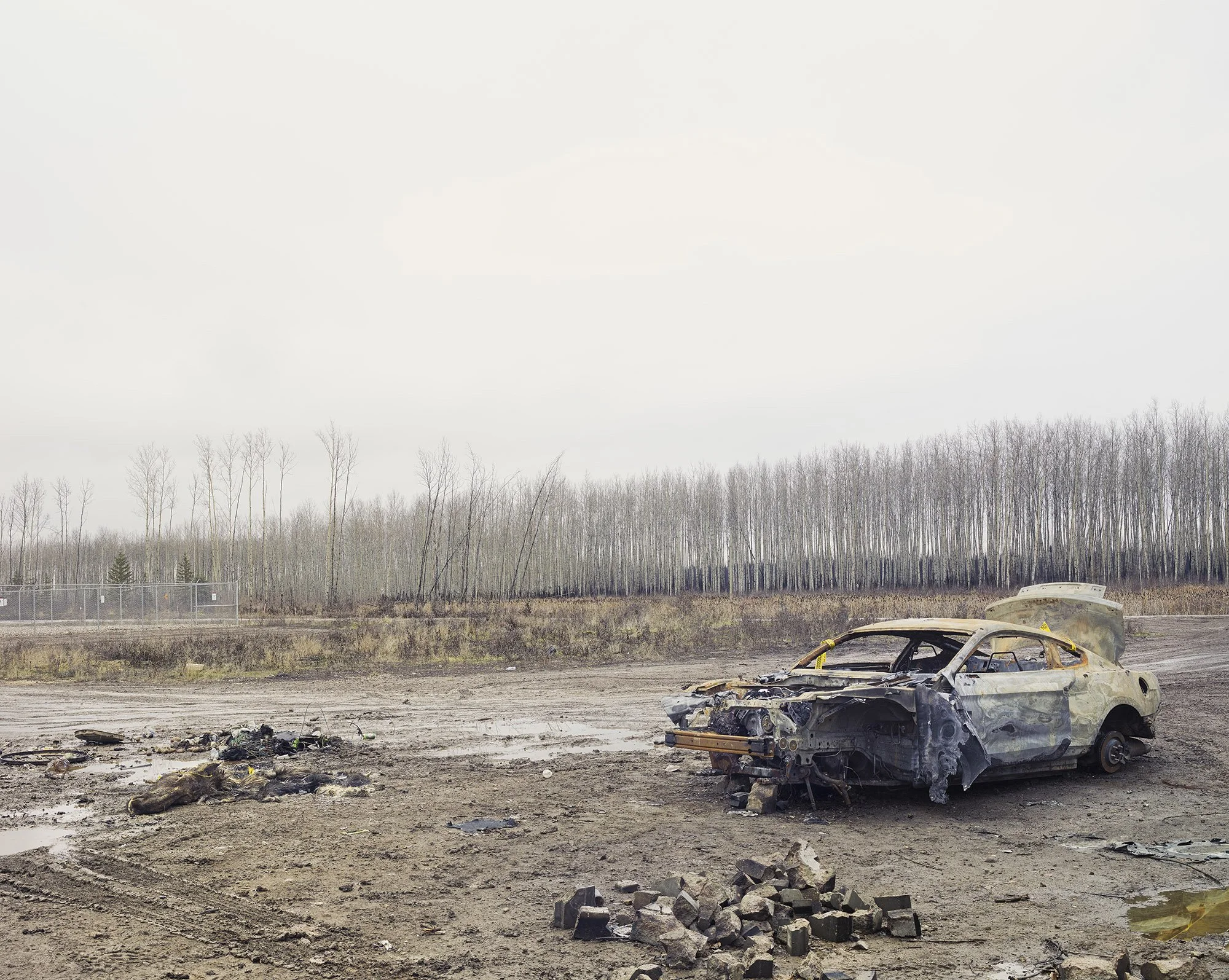“Survival of The Fittest”: An Introduction Into The Interconnectivity Between Society and Ecology
I am currently writing an essay to accompany Alan’s photography in the next monograph and, as you can imagine, I have to battle the excited urge to include every piece of thinking that makes up the text; pages and pages of “Antoinette’s thoughts in no real order” do not exactly make for the best piece of writing. Luckily, there’s a blog for me to express those thoughts in and so this blog post includes an idea which, while essential to the thinking informing my text, will have to be cut from the essay to improve the quality of the writing. Luckily, it also gives you a sneak peek into the essay!
Crossing the Lands, 2017 © Alan McFetridge
Scientific ‘development’ has certainly left its mark on Western culture and society. One of the most influential Scientific theories is, of course, Darwin's theory of Evolution. In its most basic sense, the Darwinian theory proposes that lifeforms on Earth regularly overpopulate and are in a constant state of inter and intraspecies competition. As a result, random genetic mutations producing favourable characteristics increase the chance of survival and after a long period of mating and reproducing this genetic mutation in offspring, the weaker or less-adapted individuals die out. This theory promotes a worldview that is entangled in competition, conflict, and domination and has had a myriad of social consequences (including the modern application of socio-economic institutions). Darwinian Evolution justifies human dominance over the Natural world, constructs the hierarchical “ladder” mentality that has so often been used to promote a ‘survival of the fittest’ in noxious social contexts, and indicates that indigenous communities all over the planet are in some form of primitive state with White ‘developed’ civilisation at the height of intellect and evolution. This approach to Darwinian theory is explored in detail in Robert Lawlor’s Voices of the First Day, a text inviting the reader to reimagine the Earth within the context of Australia’s aboriginal communities’ Dreamtime.
Evidently, there have been social consequences of Darwinian theory. Concepts of evolution have been used to justify eugenics, social (and often Racial) subjugation, and worst of all the concept of socio-economic “survival of the fittest”. Darwinism was informed by its social context, that of Victorian-era politics and traditions, and by participating in the wave of social change appearing within this era it constructed a new doctrine that has regulated Western thought. Transitioning into Fort McMurray, the primary case study for my essay, this Urban Service area is a place where many of the inhabitants have migrated to so that they might survive within Capitalism’s ‘Survival of the fittest’. This area makes evident the deep connection between society and industry in the wake of Darwinian “Survival of the Fittest”. The impact of Darwinian theory on the progress of Capitalism is unquestionable. This is because supposedly opposing forces such as Science and Culture, Society and Industry, Environmentalism and Economics are not so easily separated. In fact, they are completely entangled with each other. In light of this, ultimately, we can explore just how interconnected our approach to Climate Change needs to be in order to begin to fully understand the disaster at hand and realise that our current mode of existence is dangerously socially, environmentally, and globally unpropitious.
Therefore, much of my essay is dedicated to dismantling the dichotomy between social criticism and ecology for, arguably, ecology must include social criticism in order to fully encapsulate the complexities of the crisis at hand. A crisis caused by Western culture, thought, phenomena, and all in a present so heavily defined by an exploitative (then finding ways to justify that exploitation) past. Through an investigation into the social consequences of contemporary scientific language, and the social structures informing the operation of institutions, we can make claims regarding the interconnectivity between society and ecology. Inevitably, the way in which Western societies function is an integral part of their Ecology, therefore proposing that Ecology is a discipline that does, and should, include applications of the sciences within an awareness of institutions, rituals, practices, education and social responses to climate change.
Warmest regards,
Antoinette Johnson (any pronouns)
